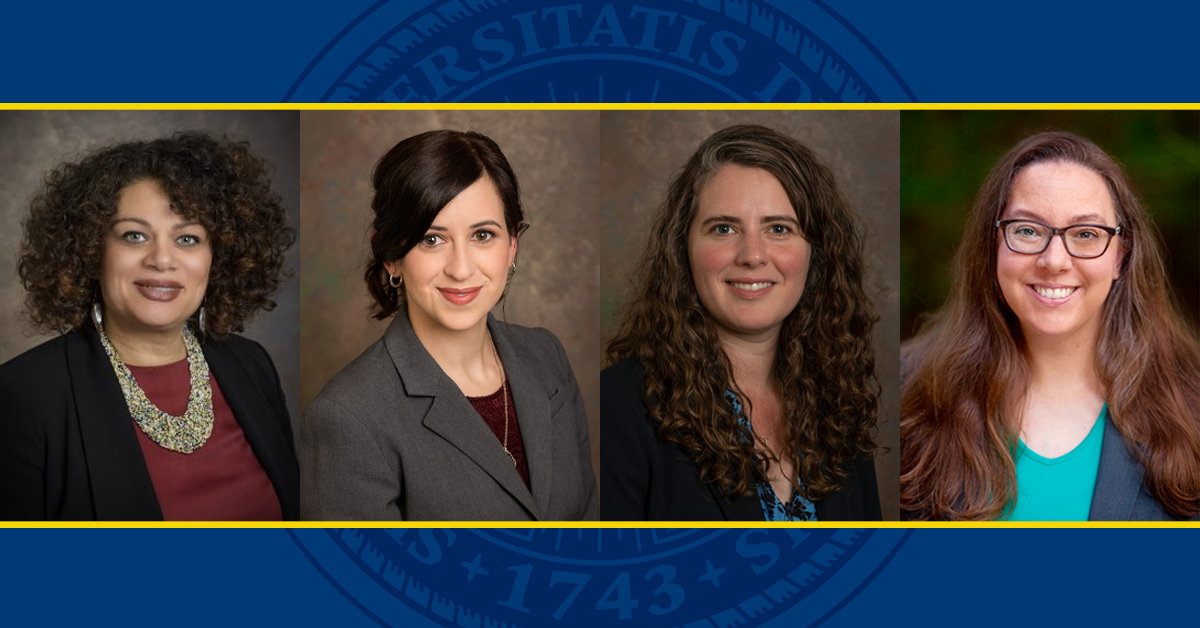CEHD Faculty Receive General University Research Grants

Twelve University of Delaware professors, including three in the School of Education and one in the Department of Human Development & Family Sciences, have won General University Research grants to work on a broad range of projects, from reducing mealtime stress for families with autistic children, to using artificial intelligence to shed light on how the Milky Way Galaxy was formed.
The merit-based grants, awarded by the Research Office, provide $15,000 in funding per project.
“General University Research grants are designed to assist faculty, especially those early in their academic careers, with research, scholarly and creative projects,” said Charles G. Riordan, vice president for research, scholarship and innovation. “This funding may support faculty in a variety of ways, whether to explore new ideas, access critical resources to bring a project to completion, or prove a concept that could seed a larger project. We wish these investigators much success and look forward to the outcomes of their work.”
- Ann M. Aviles, assistant professor in the Department of Human Development and Family Sciences, will examine the relationship between housing instability, experiences with violence, health and well-being in a street-identified community of Black youth and adults in the Northside and Westside neighborhoods of Wilmington, Delaware. Expanding on a larger project funded by the National Institutes of Health, she will conduct a series of individual and group interviews, and field observations for secondary data analysis. The findings will contribute to our understanding of health and well-being for Black individuals and communities who have historically been disenfranchised and marginalized, specifically those experiencing housing instability.
- Christina Areizaga Barbieri, assistant professor in the School of Education, will assess the benefits of two different instructional strategies on elementary school students at risk for mathematics learning difficulties. Her prior work shows that explaining common math errors — called errorful instruction — has been shown to improve math learning in general. She will compare this approach to standard instructional practices used with students with learning difficulties. The findings will lead to improved learning opportunities for those who most need them.
- Children with autism can be very selective about the food they will eat — even down to a particular brand or color — and may have ritualistic eating habits, making mealtimes stressful. To reduce the stress, Sarah Curtiss, assistant professor in the School of Education, has developed an online toolkit called Mealtimes on the Spectrum, based on interviews with families and observations of their meals. She is now evaluating the toolkit’s effectiveness. Autistic children face health risks from poor eating — under consumers may have problems such as poor bone growth and vitamin deficiencies. Conversely, autistic children are at higher risk of obesity.
- Although technology holds promise in improving math learning, teachers face challenges integrating it in the classroom, especially managing student motivation. The implications are real — students who experience positive emotions when interacting with the technology are more likely to persist on challenging tasks and learn more. In her project, Teomara Rutherford, assistant professor in the School of Education, will examine teachers interacting with students while they engage with the mathematics learning software, Spatial Temporal (ST) Math. This effort will lay the groundwork for future research on a little-studied area and develop new tools to aid teachers.



